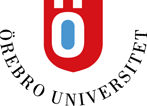Autonomous Manipulation
Research Vision
At the MRO Lab we view autonomous manipulation as a key technology for enabling a more wide-spread use of robotic systems. We are interested in devising algorithms and proof of concept systems that approach the manipulation problem as an integrated composition of planning, control, perception, and interaction. Our aim is to develop multi-time scale integrated solutions of the manipulation problem and leverage recent advances in machine learning to generalize between different manipulation tasks.
Notable Results
Manipulation as a Hierarchical Stack of Tasks
We use a Hierarchical Quadratic Programming (HiQP) stack of tasks framework to pose simple manipulation problems as a composition of different tasks. A modular implementation of the framework is available as open source software through our github account at https://github.com/OrebroUniversity/hiqp. Using the framework it is possible to on the fly generate trajectories for complex multi-DOF systems and implement complex behaviors as a composition of simple primitive constraints.
Autonomous pick and place
One of the applications of the HiQP framework is for generating simple autonomous pick and place tasks. We have developed a suite of tools for autonomous grasping, by extracting appropriate constraints for the HiQP framework from online reconstructed dense workspace models. In this work we base our approach on observed grasping behaviors from human subjects and approach objects by aligning the gripping device with the principal axis of the target object. The framework is released in the grasping_oru ROS stack on our github account: https://github.com/OrebroUniversity/grasping_oru.
Telemanipulation
Another primary research direction for us is enabling human operators to efficiently and intuitively operate manipulation systems remotely. To this end, we are using the HiQP framework for assisted telemanipulation: i.e., by allowing the remote operator to pose some desired behaviors as constraints in the control framework, while autonomously handling tedious background tasks. This approach allows an operator to concentrate on a subset of the problem, which should result in lower cognitive loads. We are exploring these issues in the KKS AMICI project.
